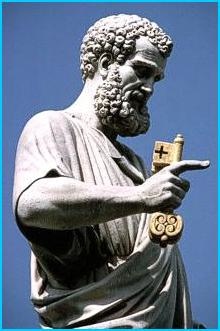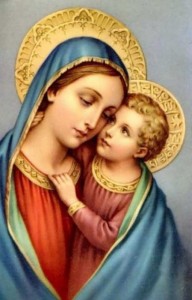The Keys to the Modern Church
 Who holds the keys to the Church?
Who holds the keys to the Church?
I read Seth Godin’s blog—I and many, many others. One of his recurring themes is how we are emerging from an industrial society that views the populace as cogs in an industrial wheel. Our schools have approached education as preparation for being a cog in the system. He recognizes that this won’t work much longer. It is time to think differently not only about how we educate but how we view the people who share our times.
It is time to think differently about Church, too. Are we treating our people like cogs in the Church Wheel?
When the idea of Sunday School developed back in the 1800s it was directed at educating the children of industrial neighborhoods. Hmm!
The people we hope to reach today are living in a fast-changing world. As a group, we are better educated than any time in history. College degrees are the norm in many communities. I watched my son graduate from high school having covered most of the material presented to me in college! The best and brightest are not likely to accept being cogs in the Church or anywhere else!
Returning to the comfort of medieval thinking is not going to work. Changing the way people have thought for centuries is a daunting proposition.
How did we get where we are today?
 Often the early attempts at order became church law and were enveloped by doctrine but were actually born of convenience and self-interest. Early church leaders, seeking authority or some justification for systemizing Christianity, looked at the Bible and read how Jesus identified Peter as the outstanding leader among his first disciples. In earthbound thinking, and as history made such thinking convenient, all kinds of rules were attached to the “Feed my sheep” passage.
Often the early attempts at order became church law and were enveloped by doctrine but were actually born of convenience and self-interest. Early church leaders, seeking authority or some justification for systemizing Christianity, looked at the Bible and read how Jesus identified Peter as the outstanding leader among his first disciples. In earthbound thinking, and as history made such thinking convenient, all kinds of rules were attached to the “Feed my sheep” passage.
Oddly, male church leaders read this passage and focused on gender. Peter was male, therefore all church leaders forevermore must be male. Jesus does not mention gender as his reason for choosing Peter. Peter was also married, but married clergy were problematic in a society all too familiar with abuses of ungoing power and wealth by virtue of birth. Let’s ignore that!
The same logic applies to the Church’s view of Mary. Mary was a woman. Mary gave birth to Jesus. Therefore, the role of women in the Church is to bear children—something men can’t do, as a respected, high-ranking cardinal recently pointed out in a 60 Minutes interview.
 Mary probably did a lot more than give birth to Jesus, both before and after the Resurrection. But she did not write the Gospels, and she wasn’t a man at a time when men made most decisions. So church leaders focus on Mary as woman, while they assign themselves every other position because they cannot bear children. It doesn’t make sense today. It never made sense.
Mary probably did a lot more than give birth to Jesus, both before and after the Resurrection. But she did not write the Gospels, and she wasn’t a man at a time when men made most decisions. So church leaders focus on Mary as woman, while they assign themselves every other position because they cannot bear children. It doesn’t make sense today. It never made sense.
The Church is no longer the political power it once was. That has been good. The Church should focus on creating Godly community. But the Church must do a timely and unselfish job if it is to keep the attention of people who don’t have to participate by law or custom.
Lacking societal pressure, people are choosing to opt out of something that just isn’t making sense in the world we know. Younger generations, baby boomers and down, are not necessarily forsaking spirituality or Christ, we just have a sense that we don’t fit the mold that was so comfortable for our parents and grandparents.
Here’s a question:
If the earliest Christians had lived today, what kind of structure would they have chosen?
Would they have noticed Peter’s gender as the determining qualification for leadership? Would they have focused on other qualities that are equally “Peter”—his passion and loyalty, his pragmatism, his humility and repentance, his ability to recognize his short-comings, his ability to change? Would they see Mary as a dedicated and brave witness to the Crucifixion, as a leader among the many women following her son?
The Church might recognize that the laity are not “cogs” in the Church Wheel, requiring nothing more than a weekly oiling. They might find that many laity hold the keys to the future Church. There are countless Peters and Marys with plenty of work to go around.
This was always recognized to some extent with the auxiliaries of the church, nuns and deaconesses often provided the healing, social, and teaching functions that were foundational to church growth. Our small church owes as much to diaconate leadership as we do to clergy!
Modern young people do not want to be “cogs.” Today’s faithful want to use their skills to the fullest without feeling secondary, under the control of people who have power but lack their expertise.
It’s not that this generation is anti-church. We are frustrated with the obstacles that are holding us back but over which we have little control.
Here’s another set of questions:
What if in the full spectrum of time WE are the earliest Christians? What if two, three, four thousand years from now, there are Christian faithful looking to us for saintly example? What examples are we setting to help them?
Opting out is a modern choice.
The Church that doesn’t recognize this and respond to the loss of the faithful will wither.
